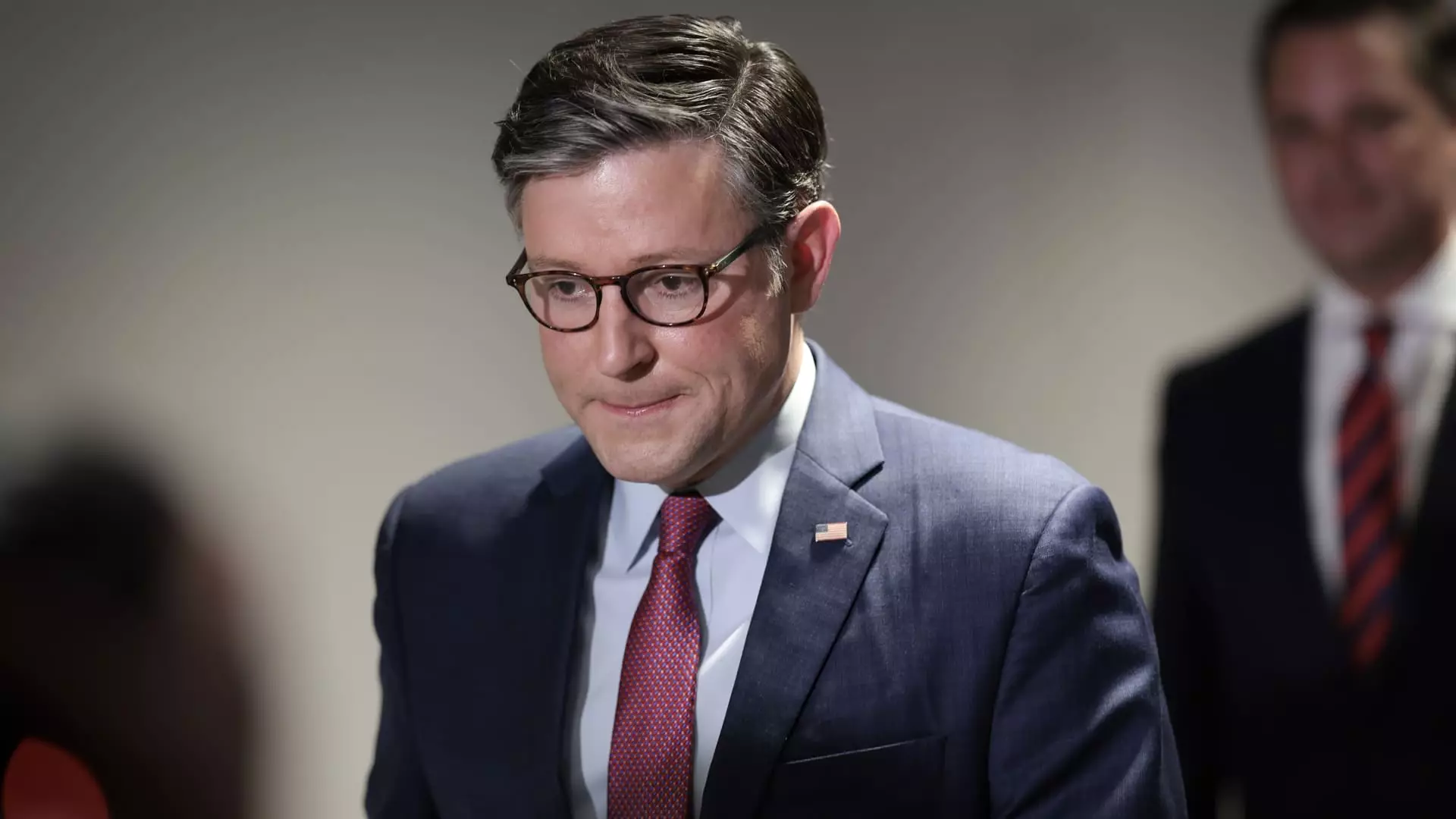In a significant turn of events, Republican House Speaker Mike Johnson recently unveiled a temporary government funding proposal that marks a departure from the previous strategy endorsed by former President Donald Trump. This tactical shift illustrates the complex landscape of U.S. politics as Johnson seeks to navigate immediate challenges while attempting to secure bipartisan support in a divided Congress.
Johnson’s new bill aims to fund the government until December 20, a timeframe that provides just enough leeway to avoid an impending shutdown. Crucially, this iteration excludes the SAVE Act—a contentious piece of legislation championed by Trump aimed at tightening voter registration processes through citizenship verification. By doing so, Johnson is stepping away from Trump’s hardline stance, which may signal an attempt to engage with Democrats and stabilize the party amidst an approaching election cycle.
In a correspondence to House members, Johnson referred to the proposal as “narrow” and “bare-bones.” This choice of language suggests an acknowledgment of the urgency at hand; the GOP must sidestep potentially disastrous repercussions that could arise from a government shutdown. With only eight days remaining to reach a consensus, the pressure is mounting as election day looms—less than 40 days away, when both Congressional and Presidential power dynamics could shift dramatically.
Johnson’s strategic pivot reflects the broader implications of political calculus. The consequences of a government shutdown, especially in the context of an upcoming election, could be severely detrimental to the party’s reputation and success. In his correspondence, Johnson underscored the potential backlash, referencing historical precedents and current polling data that suggest shutting down the government in such a narrow window would likely be seen as political malpractice.
This newfound prudence from Johnson comes at a time when previous plans for longer-term funding met with significant resistance, not only from Democrats but also within his own party. The earlier proposal, which included a longer funding package and the SAVE Act, faced backlash from some GOP members who opposed temporary funding measures altogether. Moreover, the intricate dynamics of a House majority that could only afford to lose a handful of votes complicates any approach.
A noteworthy aspect of the revised proposal is the inclusion of $231 million earmarked for Secret Service operations—an apparent response to increasing security concerns following a recent assassination attempt against Trump. This allocation aligns with the broader goal of ensuring safety during such a tumultuous political climate while serving as a clear message to both sides of the aisle about the seriousness of security for public officials.
Johnson’s decision to distance himself from Trump’s preferred strategy highlights the necessity for bipartisan cooperation in contemporary governance. President Joe Biden and Senate Majority Leader Chuck Schumer have both voiced their support for a more streamlined, shorter-term funding approach, which they believe could pave the way for a more constructive beginning for the newly elected officials in January. Schumer’s upbeat outlook on the matter indicates a possible thaw in relations between the parties, provided that Johnson’s concessions are received favorably.
Johnson’s compromises may have profound implications for his tenure as Speaker. His predecessor, Kevin McCarthy, lost his speakership primarily due to backlash following a bipartisan agreement to cease a government shutdown. Therefore, Johnson must navigate his party’s internal divisions while also managing expectations from the Democratic side—an intricate dance that could either solidify his leadership or hasten dissent.
The evolving nature of this situation exemplifies the challenges leaders face in a polarized political environment. As Johnson walks a tightrope between appeasing Trump’s base and engaging in cooperative politics, the outcomes of these negotiations will be closely scrutinized. Ultimately, while this funding proposal may stave off immediate crises, the long-term sustainability of his leadership will depend on the balance he can strike between ideological rigor and pragmatic governance.
Speaker Mike Johnson’s latest proposal symbolizes a critical juncture for the Republican Party as they grapple with internal strife and external pressures. The ability to strike bipartisan deals amidst a challenging political landscape may redefine the future of party dynamics and governance in Washington. As the clock ticks towards a potential shutdown, the stakes for both Johnson and the GOP could not be higher.


Leave a Reply